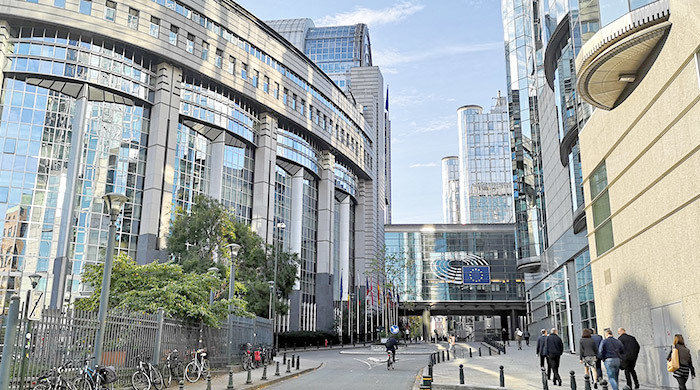BRUSSELS / LONDON: The negotiating teams should try again to achieve a breakthrough in the talks on a Brexit trade pact. It is unclear whether they now have more leeway.
After a one-day break and a phone call at the highest level, EU and UK negotiators will resume talks on a Brexit trade pact on Sunday. EU negotiator Michel Barnier and his British counterpart David Frost broke off talks on Friday and called their bosses to the scene. That had already raised hopes that a deal was imminent and could now be brought across the finish line at the highest level. But these hopes were dashed.
EU Commission President Ursula von der Leyen and British Prime Minister Boris Johnson only noted “significant differences” and handed the baton back to the negotiators after their talks on Saturday. It remained unclear whether their scope for concessions will now be greater. Von der Leyen and Johnson want to speak again about the state of affairs on Monday.
Should the talks fail, there will be tariffs and other trade barriers between Great Britain and the continent at the turn of the year. Because then the Brexit transition period will expire, during which everything stayed the same despite the UK’s exit from the EU on January 31. In the event of a no deal, the economy on both sides of the English Channel is expecting major upheavals. It is feared that there will be kilometers of traffic jams in the hinterland of the ferry terminal in Dover and the entrance to the Eurotunnel in Folkestone.
According to a report by the Observer, the British government is even planning to fly in the corona vaccine recently approved in the country by the Mainz company Biontech and its US partner Pfizer with military aircraft. This should prevent delays in the delivery of the product caused by Brexit. Traffic jams are expected even in the case of a deal, because additional formalities will arise even without customs duties.
The chairman of the Christian Democrats in the European Parliament, Manfred Weber, warned Johnson not to let the negotiations break. “He would sin against the future of his country if he failed an agreement,” Weber told the newspapers of the Funke media group and added: “A solution is possible.” But it is also clear that there is no agreement at any price. The integrity of the EU internal market should not be jeopardized.
There are three main issues at stake: a level playing field, fisheries and the instruments for penalizing violations of the planned agreement.
The competitive conditions – the keyword is level playing field – are, among other things, about environmental, social and aid standards. Great Britain would like to have as few guidelines as possible from the EU – for Johnson this is a question of sovereignty. However, the EU wants to prevent competitive advantages for British companies through regular dumping, especially since the desired trade agreement would allow British goods to enter the EU market unpaid and without quantity restrictions.
The second major issue, fisheries, is the amount that EU fishermen are allowed to catch in British waters. According to insiders, quotas and a clause to review the regulation after a certain period (revision clause) are under discussion.
For France in particular, the subject of fisheries is of great political importance. French President Emmanuel Macron once again insisted this week on French fishermen’s access to British waters. He said he would only agree to a contract if the long-term interests of his country were safeguarded. This was understood as a threat of veto.
Another major obstacle in the negotiations is the planned British Internal Market Act, which would undermine parts of the EU withdrawal treaty that is already in force. The British government announced that it would reintroduce the controversial clauses into the bill on Monday. They had previously been removed from the House of Lords. The EU is outraged by the planned breach of contract. Another bill is to follow on Tuesday. The so-called finance law should also run counter to the exit agreement.
– .

-ktWH--1024x512@abc.jpg)
